

Our Courses

Backend Development using ASP.Net
The second course in the ASP.NET for Experienced Developers specialization dives deeper into the development of robust and scalable backend applications using ASP.NET technologies. This course is structured around three key ASP.NET technologies: ASP.NET Core, ASP.NET MVC, and ASP.NET Web API. In the first module of the course, participants will explore ASP.NET Core, a cross-platform, high-performance framework for building web applications.
-
Course by

-
 Self Paced
Self Paced
-
 18 hours
18 hours
-
 English
English

Data Security for Web Developers
This course is designed for novice learners looking to broader their knowledge of how to secure data for the web applications they have developed. The course starts with foundational ideas like SSL/TLS certificates, rules governing security like GDPR, and handling secrets. The second module is devoted to cryptography, while the third module covers access control.
-
Course by

-
 Self Paced
Self Paced
-
 10 hours
10 hours
-
 English
English

Django Features and Libraries
This third course in Django for Everybody explores building Django-based web applications through the use of cookies, sessions, and the authentication processes in Django. You will develop a simple web application and learn how an application moves from development to production.
-
Course by

-
 Self Paced
Self Paced
-
 English
English
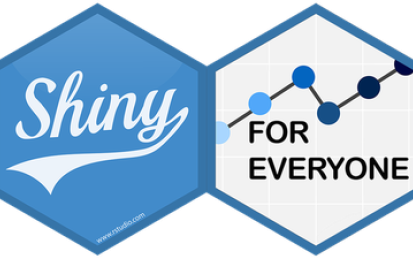
RShiny for Everyone
Use R’s Shiny package to create data-driven, interactive web applications.
-
Course by

-
 Self Paced
Self Paced
-
 2
2
-
 English
English

APIs in Node.js: Write a RESTful API Backend Application
This Guided Project Node.js: Write a RESTful API Backend Application is for learners who want to be able to develop backend web applications with Node.js. In this 1.5-hour long project-based course, you will learn how to develop backend applications with Node.js and implement RESTful API in HTTP. To achieve this, we will work through building a shopping list backend application in Node.js using Visual Studio Code. In order to be successful in this project, you will need to have mastery of core JavaScript.
-
Course by

-
 Self Paced
Self Paced
-
 2 hours
2 hours
-
 English
English

Desarrollador back-end de Meta
Ready to gain new skills and the tools developers use to create websites and web applications?
-
Course by

-
 Self Paced
Self Paced
-
 Spanish
Spanish

Software Security for Web Applications
Explore software security for web applications concepts without installing anything! This course is designed for intermediate learners, providing a solid foundation of common skills in software security. Learners will build an understanding of some of the most common software security techniques currently employed. The modules in this course cover front-end security, back-end security, as well as passwords and authentication.
-
Course by

-
 Self Paced
Self Paced
-
 11 hours
11 hours
-
 English
English

Secure Full Stack MEAN Developer
MEAN stack development is a modern approach to building dynamic web applications. It is an open-source JavaScript framework that harnesses four major technologies: MongoDB, Express, Angular, and Node.js. Given the ever-increasing demand for full-stack JavaScript developers, this course will help you master both front-end and back-end development. The course will begin with teaching you how to build your own application with plain JavaScript and the fundamentals of web development (HTML, CSS, and JavaScript).
-
Course by

-
 Self Paced
Self Paced
-
 25 hours
25 hours
-
 English
English
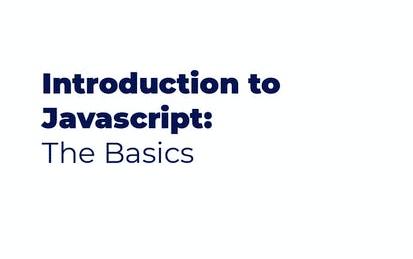
Introduction to Javascript: The Basics
In this 2h 10m long project-based course, you will learn how to create dynamic web pages using Javascript. Javascript is one of the most popular scripting languages used in front-end, back-end web applications and hybrid mobile applications. It can be used to add interactivity to static HTML pages. It also could be used at the back end of modern web applications. Moreover, it is the core of many modern frameworks used to build hybrid mobile web applications. Learning Javascript opens up a huge variety of promising career options.
-
Course by

-
 Self Paced
Self Paced
-
 3 hours
3 hours
-
 English
English

Identifying Security Vulnerabilities
This course will help you build a foundation of some of the fundamental concepts in secure programming. We will learn about the concepts of threat modeling and cryptography and you'll be able to start to create threat models, and think critically about the threat models created by other people. We'll learn the basics of applying cryptography, such as encryption and secure hashing. We'll learn how attackers can exploit application vulnerabilities through the improper handling user-controlled data.
-
Course by

-
 Self Paced
Self Paced
-
 14 hours
14 hours
-
 English
English

Building RESTful APIs with Node.js and Express
This course will teach you how to build RESTful APIs using Node.js and Express, two popular and widely used technologies in web development. You will learn how to create a server-side application that can handle requests from client-side applications and respond with JSON data. In the first module, participants will delve into the world of Node.js and Express, learning how to set up a development environment, explore the architecture of Node.js, and work with built-in modules.
-
Course by

-
 Self Paced
Self Paced
-
 14 hours
14 hours
-
 English
English

MongoDB Tutorial
This tutorial is designed to introduce you to the MongoDB database management system. MongoDB is a NoSQL document database that stores data in flexible, JSON-like documents, making it easy to work with and integrate with web applications. In this tutorial, you will learn the basics of MongoDB, including how to install and set up MongoDB on your local machine, how to create databases and collections, and how to perform CRUD (Create, Read, Update, Delete) operations on data.
-
Course by

-
 Self Paced
Self Paced
-
 9 hours
9 hours
-
 English
English
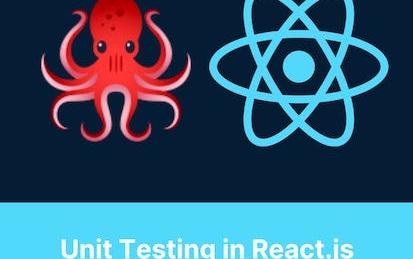
Unit Testing in React.js: Create a Unit Test Suite
Why is unit testing essential for developing high-quality React applications? In this project, you will delve into the core principles of testing React applications using the React Testing Library, building an extensive test suite for a real-world movie search application that fetches data from an API and displays it on screen.
-
Course by

-
 Self Paced
Self Paced
-
 3 hours
3 hours
-
 English
English
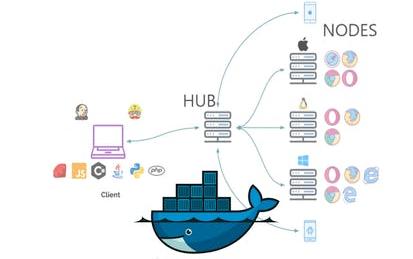
Selenium Test Execution On Docker Containers
“Selenium automates browsers, that’s it. What you do with that power is up to you.” Selenium is the most widely used UI automation tool to test web applications. Docker helps developers build lightweight and portable software containers that simplify application development, testing, and deployment. In this project, we will learn why and how to execute Selenium tests on Docker containers. By the end of this project, you will be able to execute Selenium tests sequentially or parallelly on multiple browsers deployed on Docker containers.
-
Course by

-
 Self Paced
Self Paced
-
 2 hours
2 hours
-
 English
English

Building Web Applications in Django
This second course in Django for Everybody explores data models in Django and how it communicates with a database. This course also explores basic Structured Query Language (SQL) and database modeling and how they work in the Django model.
-
Course by

-
 Self Paced
Self Paced
-
 English
English

Fundamentals of Computer Network Security
This specialization in intended for IT professionals, computer programmers, managers, IT security professionals who like to move up ladder, who are seeking to develop network system security skills.
-
Course by

-
 Self Paced
Self Paced
-
 English
English
Computational Thinking with JavaScript
This Specialization is intended for those with minimal under-the-hood experience of working with computing who want to take the first steps towards a deep understanding of principles and practice of how to solve problems with software technology. Learners will use JavaScript within a web-based framework to generate graphics and analyse data, bringing these together in interactive web applications. Learners will acquire specific self-directed learning skills, enabling them to tackle new problem domains and technologies throughout their work and life.
-
Course by

-
 Self Paced
Self Paced
-
 English
English

JavaScript Tutorial
Javascript continues to be one of the hottest programming languages in the tech industry! With a solid grasp of Javascript, you'll have the power to build dynamic and interactive web applications.
-
Course by

-
 Self Paced
Self Paced
-
 9 hours
9 hours
-
 English
English

Cloud Security Scanner: Qwik Start
This is a self-paced lab that takes place in the Google Cloud console. The Cloud Security Scanner identifies security vulnerabilities in your Google App Engine web applications.
-
Course by

-
 Self Paced
Self Paced
-
 1 hour
1 hour
-
 English
English

Web Applications for Everybody
This Specialization is an introduction to building web applications for anybody who already has a basic understanding of responsive web design with JavaScript, HTML, and CSS. Web Applications for Everybody is your introduction to web application development. You will develop web and database applications in PHP, using SQL for database creation, as well as functionality in JavaScript, jQuery, and JSON. Over the course of this Specialization, you will create several web apps to add to your developer portfolio.
-
Course by

-
 Self Paced
Self Paced
-
 English
English

ASP.NET for Experienced Developers
Master the expertise to build modern, secure, and scalable applications using .NET technology. This comprehensive three-course specialization takes you from programming fundamentals to advanced deployment practices: C# for .NET Developers – Build a strong foundation in C# and the .NET framework, covering essential programming concepts like variables, operators, control structures, and object-oriented programming. Learn how to develop web applications using ASP.NET.
-
Course by

-
 Self Paced
Self Paced
-
 English
English

Django for Everybody
This specialization introduces Python programmers to building websites using the Django library. Across the four courses, you will learn HTML, CSS, SQL, Django, JavaScript, jQuery, and JSON Web Services. During the course, you will build online websites using Django and those working websites are graded throughout the course. This series is excellent preparation for learning other ways to build web applications using technologies like PHP (Web Applications for Everybody), Flask or Ruby on Rails.
-
Course by

-
 Self Paced
Self Paced
-
 English
English

Meta Back-End Developer
Ready to gain new skills and the tools developers use to create websites and web applications? This certificate, designed by the software engineering experts at Meta—the creators of Facebook and Instagram, will prepare you for an entry-level career as a back-end developer. In this program, you’ll learn: Python Syntax—the most popular choice for machine learning, data science and artificial intelligence. In-demand programming skills and how to confidently use code to solve problems. Linux commands and Git repositories to implement version control.
-
Course by

-
 Self Paced
Self Paced
-
 English
English

Java FullStack Developer
The Java Full Stack Developer Specialization equips you with the end-to-end skills needed to build modern, cloud-ready web applications. Across three courses, you’ll master core Java programming (OOP, multithreading, data structures), gain front-end expertise with HTML, CSS, JavaScript, and Angular, and develop strong back-end capabilities with Servlets, JSP, JDBC, Spring, and Hibernate.
-
Course by

-
 Self Paced
Self Paced
-
 English
English
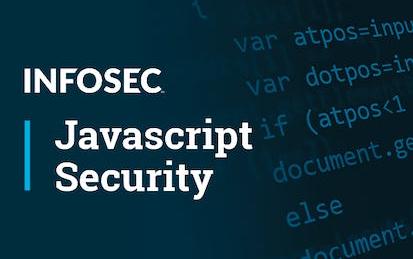
JavaScript Security
In this Specialization, we will investigate, prevent, and resolve JavaScript-related attacks and learn how to build safer JavaScript applications. JavaScript is a fundamental technology for building web applications and is also popular for building server-side, desktop, and even mobile applications. Most of this learning Specialization will cover front-end JavaScript; however, we will also consider Node.js. After completing this Specialization, you will understand the diverse threats and protections of the JavaScript world.
-
Course by

-
 Self Paced
Self Paced
-
 English
English



